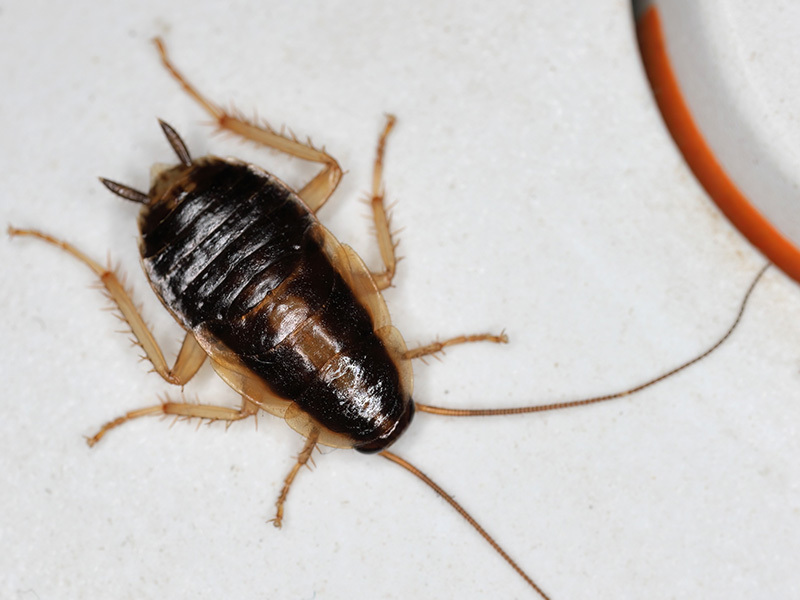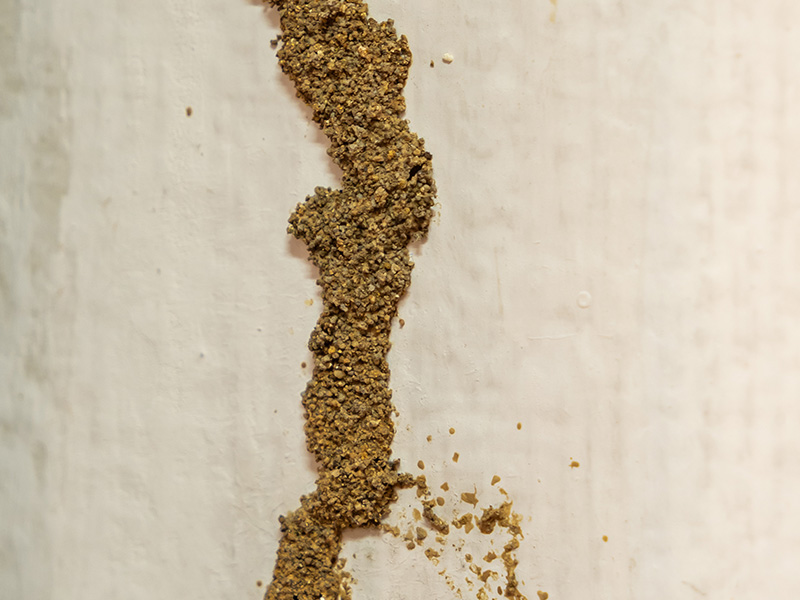5 Common Termite Damage Repairs Every Homeowner Should Know About
Most homeowners don’t realize that termites can be chewing away at their houses without any apparent signs. Subterranean termites are common in Phoenix, Tucson, and the rest of Southern Arizona, and the damage they cause can be costly.
Because termites work out of sight, they often go undetected until damage becomes serious. In fact, termites cause over $5 billion in property damage across the U.S. every year. Understanding the most common types of termite damage and how to prevent them can save homeowners thousands. Here are five repairs you may face if termites invade your home.

1. Structural Wood Replacement
Subterranean termites eat wood from the inside out, hollowing it while leaving the surface seemingly intact. This makes structural wood, including beams, joists, studs, and framing, especially vulnerable.
Over time, termite damage weakens the wooden elements that literally hold your home together, creating safety risks. Structural repairs are among the most expensive termite-related fixes. Treating termites or implementing a preventative termite control plan before they cause significant damage saves you money and a lot of headaches down the road.
2. Flooring Repairs
The first visible signs of termite damage often appear in your floors. Termites frequently infest subfloors, causing the finish flooring above to sag, buckle, or squeak as support diminishes.
Other warning signs include cracks or gaps in wood, tile, or laminate flooring, or lifting and peeling in vinyl or linoleum. While not always as dangerous as structural damage, damaged floors can still pose a risk of injury. Repairs typically involve removing the flooring, fixing or replacing the subfloor, and installing new flooring if needed.
3. Drywall & Wall Repairs
Termites don’t just go after your floors—they can sneak into your walls, chewing on wood studs or the space behind drywall or plaster. You might notice signs like:
- Bubbling or peeling paint and wallpaper
- Hollow sounds when tapping walls
- Visible mud tubes behind baseboards
Repairing walls often requires removing and replacing drywall, damaged studs, and insulation. After repairs, walls must be rebuilt, taped, mudded, sanded, and repainted.
4. Door & Window Frame Replacement
In Arizona, doors and windows rarely stick due to humidity, so difficulty opening or closing them can signal termite damage. Termites hollow out wooden frames, causing them to shift or warp.
Depending on the damage, homeowners may need to replace door and window frames entirely. Sometimes they can be reused, but that is not often the case.
5. Foundation & Crawl Space Repairs
Termites typically enter homes from underground, putting foundations and crawl spaces at high risk. They can also damage wood elements like sill plates, rim joists, and floor beams, compromising structural integrity.
Foundation and crawl space repairs can be complicated and costly, often requiring professional assessment by a structural engineer to ensure the home is safe.
Why Homeowners Insurance Usually Doesn’t Cover Termite Damage
Many homeowners assume termite damage is covered under their insurance, but that’s rarely true. Most standard homeowners' insurance policies consider it “preventable” and exclude termite damage from coverage. Insurance is designed to protect against sudden, accidental events and not damage that develops over time due to neglect or lack of maintenance.
This means that if termites silently destroy your structural wood, flooring, or walls, the cost of repairs comes straight out of your pocket. Preventative termite treatments aren’t just smart, they’re essential for protecting both your home and your wallet.
How to Avoid Costly Termite Damage
The good news? You don’t have to wait until termites cause damage. Taking steps to protect your home now can prevent costly repairs later.
Northwest Exterminating offers comprehensive termite control services that include:
- Termite bait systems
- Liquid termite treatments
- Customized prevention plans
Even if your home looks termite-free, an infestation can go unnoticed until it’s too late. Scheduling a termite inspection and implementing a preventative plan now can save you thousands in repairs and give you peace of mind.
Protect your home today; call (520) 210-5403 or complete our form to schedule your termite inspection.

Testimonials
Request Your FREE Estimate
Have questions or need help getting rid of pests? Simply complete the form below or give us a call!
Pest Solutions For Homes & Businesses
Northwest Exterminating provides pest control services in the Phoenix metro and Tucson, as well as throughout Southern Arizona, that target pests found in our region's unique desert environment. We promise personalized service and state-of-the-art techniques for all your exterminating needs.
Any Pest, On Time, Guaranteed.



